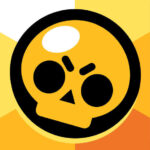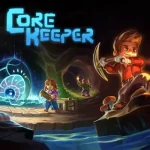
God of War Ragnarök
Popular Now
Introduction
God of War Ragnarök is a game filled with rich lore, complex combat mechanics, and breathtaking visuals. However, one of its most compelling elements lies within the deeply personal journey of its main characters: Kratos and his son Atreus. Unlike the previous game, God of War (2018), which primarily focused on Kratos’ struggle to balance his violent past with the need to be a father to Atreus, Ragnarök delves deeper into the emotional complexities of their relationship. The game not only explores the evolving dynamic between them but also pushes Kratos to confront his past actions, his desire to protect Atreus, and his fears for the future.
This article will explore how God of War Ragnarök masterfully presents the father-son relationship between Kratos and Atreus, highlighting key moments where their bond is tested, strengthened, and reshaped. We will discuss the narrative choices that shape their relationship, the psychological impact of their journey, and how these themes resonate with players on a deeper level.

1. Kratos' Protective Nature and the Burden of Fatherhood
Kratos' Struggle to Protect Atreus
From the beginning of God of War (2018), Kratos is seen as a hardened, emotionally distant father, weighed down by his violent past. His primary motivation has always been to shield Atreus from the harsh realities of the world. In Ragnarök, this protective instinct intensifies as Kratos becomes more aware of Atreus' potential and the prophecy surrounding his son’s role in the coming Ragnarök.
-
The Weight of Protection: Kratos' protective nature, though born out of love, becomes a double-edged sword. He fears the inevitability of Atreus' involvement in Ragnarök, knowing the sacrifices it may require. This fear leads to a controlling nature, as Kratos tries to shield Atreus from making choices that could have devastating consequences.
-
The Complexity of Protection: What is often seen as love is, in Kratos’ case, a form of emotional stunting. His overprotectiveness causes tension, as Atreus yearns for independence. Kratos' desire to shelter Atreus from the brutalities of the world ultimately hinders his son's growth and understanding of the responsibilities he must face.
2. Atreus’ Growing Independence and Identity Crisis
The Evolution of Atreus’ Character
As Ragnarök progresses, Atreus starts to mature and forge his own path. Unlike the boy from 2018, who relied heavily on Kratos for guidance and protection, Atreus begins to confront the weight of the prophecy and his own destiny. Atreus, as Loki, is bound by his lineage to the gods and the eventual events of Ragnarök, which forces him to take control of his fate.
-
Atreus' Need for Freedom: Atreus’ increasing independence is in direct conflict with Kratos' protective tendencies. As he grows more confident in his abilities, Atreus increasingly chafes under his father’s shadow. He questions Kratos' authority and decisions, especially when Kratos tries to prevent him from learning certain truths about the world, even though they are necessary for him to understand his own identity.
-
The Quest for Purpose: Atreus’ journey in Ragnarök is not just about discovering his place in the world but also about understanding his own power and responsibilities. He questions his purpose in the grand scheme of things, and throughout the story, he grapples with his identity as Loki. This internal conflict becomes one of the core themes of the game, emphasizing Atreus' need to take ownership of his story, separate from his father’s past.

3. Prophecy and Free Will: The Battle Between Fate and Choice
The Strain of Prophecy on Kratos and Atreus
The central conflict of Ragnarök lies in the tension between fate and free will, especially in relation to the prophecy about Atreus. In the first game, Kratos is haunted by his own past and the prophecies surrounding his own fate, particularly the tragic death of his wife, Faye. However, in Ragnarök, it is Atreus who must confront the burden of prophecy as he learns of his central role in the world’s destruction.
-
Kratos' Fear of Prophecy: Kratos, knowing how his past actions were dictated by prophecy, does not want Atreus to suffer the same fate. Kratos, therefore, tries to steer Atreus away from his prophesized role in Ragnarök. However, this attempt to control his son's destiny only drives a wedge between them. Atreus, who believes that he can change his fate, rebels against Kratos' warnings and ultimately chooses his own path.
-
Atreus' Rejection of Fate: Atreus refuses to accept that he is merely a pawn in the gods' games. He begins to see himself not as a child of prophecy but as an individual capable of shaping his own future. This clash between father and son is rooted in the differences in how they perceive the role of destiny in their lives. While Kratos believes in the inevitability of fate, Atreus is determined to forge his own path.
4. The Clash of Ideals: Kratos' Past vs. Atreus' Future
Kratos' Distant Fatherhood
Atreus’ desire for freedom and self-discovery is at odds with Kratos' desire to keep him safe and controlled. Kratos, who has spent much of his life battling against gods and facing the consequences of his violent nature, wants to shield Atreus from the same mistakes. In his mind, the best way to protect Atreus is through control, keeping him ignorant of his true power and the dangers ahead.
-
The Father’s Guilt: Kratos’ relationship with Atreus is complicated by his own feelings of guilt and fear. He’s burdened by the mistakes of his past and the belief that he’s cursed to bring destruction to those he loves. Kratos’ journey, therefore, becomes a search for redemption, not just for himself but for Atreus, whom he views as the only person he has left to protect.
-
Atreus’ Rebellion: On the other hand, Atreus, though raised by Kratos, has inherited his mother’s sense of independence and his own desire to make a difference. Atreus is not content with merely following in his father’s footsteps; he wants to challenge the status quo. As Kratos tries to shield him from this, Atreus pushes back, believing that his journey requires embracing his identity, even if that means going against his father’s wishes.

5. Moments of Unity: How Kratos and Atreus Strengthen Their Bond
The Role of Shared Experiences
Despite their differences and the occasional conflict, there are moments in Ragnarök where Kratos and Atreus unite, realizing that their bond is stronger than anything that could tear them apart. The game emphasizes the importance of shared experiences, particularly those that are tied to danger, loss, and the realization that neither of them can carry their burdens alone.
-
The Battle Together: The game often puts Kratos and Atreus in situations where they must fight together, combining their strengths in battle. These moments remind both of them that their survival depends on their ability to work as a team. They both begin to understand that Kratos’ protection, while stifling, is rooted in love, and Atreus begins to see his father not just as a protector but as an ally and confidant.
-
The Acceptance of Each Other’s Roles: In the final act of the game, Kratos begins to acknowledge Atreus' growing independence, while Atreus starts to understand the weight of his father's fears. Their journey culminates in a mutual respect for one another’s choices, even if they don’t always agree. This acceptance marks the emotional maturity of their relationship.
6. Kratos’ Transformation as a Father
A Shift from Protector to Mentor
At the beginning of Ragnarök, Kratos is primarily focused on protecting Atreus, believing that the only way to keep him safe is through control. However, as the game progresses, Kratos begins to evolve in his role as a father. He starts to see that his overprotectiveness is harming Atreus’ development and that his son needs to experience the world, including its dangers, on his own terms.
- From Command to Guidance: Kratos shifts from being a domineering father to one who guides Atreus through the complexities of their world. This transformation represents Kratos’ understanding that he must let go and trust Atreus to make his own decisions, even if it means letting him face the consequences.

7. The Power of Legacy: What Kratos and Atreus Leave Behind
The Importance of Legacy
As Ragnarök comes to a close, both Kratos and Atreus are faced with the realization that they are part of something much larger than themselves. Kratos, whose life has been defined by violence and loss, begins to understand the significance of his legacy not in terms of destruction but of growth and change. Atreus, too, finds his place in the larger narrative of the Nine Realms, but he does so on his own terms.
-
Kratos’ Redemption: Kratos' legacy, once tainted by the deaths he caused, now becomes a story of redemption. His relationship with Atreus is the final chapter in his personal journey, and by allowing his son to follow his own path, Kratos finds peace.
-
Atreus’ Future: Atreus, having come into his own, understands that his legacy is not defined by his father’s shadow. Instead, it will be shaped by his own actions and decisions. The game leaves players with the sense that Atreus is ready to carry on the mantle, but in a way that is uniquely his own.
8. The Emotional Climax: The Final Act of Fatherhood
The Ultimate Sacrifice
In the final moments of God of War Ragnarök, the relationship between Kratos and Atreus comes full circle. Kratos’ ultimate act of fatherhood is not about protecting Atreus from danger but about allowing him to make his own decisions, even if it means stepping away. This final sacrifice highlights Kratos' growth as a father and his willingness to let go of the past for the sake of his son’s future.
- A Father’s Love: Kratos' sacrifice underscores the game’s central theme: the love between father and son transcends time, prophecy, and even fate itself.

Conclusion
God of War Ragnarök takes players on a profound emotional journey, focusing on the complicated yet beautiful relationship between Kratos and Atreus. Through their struggles, growth, and eventual mutual understanding, the game explores themes of fatherhood, destiny, and legacy in ways that resonate deeply with players. The emotional payoff of their journey is not just in the resolution of their individual arcs, but in the strengthening of their bond, marking a powerful conclusion to the father-son story.

















